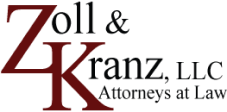Are You Taking Contaminated Herbal Supplements? Mislabeled Consumer Products May Cause Adverse Events.
Attorney General Eric T. Schneiderman of New York recently asked GNC, Target, Walgreens, and Walmart to stop sales of certain store brand herbal supplements due to the failure of DNA testing on the detection of plant materials listed on product labels.
Cease and desist letters were sent after most store brand herbal supplements had only 21% DNA results from plant species listed on product labels. Alarmingly, 79% of material in the package proved to not have any DNA from plants related to what is labeled, or, worse is contaminated with other plant material. Walmart’s products tested the worst.
Attorney General Schneiderman commented:
“Mislabeling, contamination, and false advertising are illegal. They also pose unacceptable risks to New York families—especially those with allergies to hidden ingredients.” Attorney General Schneiderman (press release)
Potential adverse events that can occur to users who consume these herbal supplements without knowing the contents. An allergic reaction to an unlisted contaminant could even be fatal.
Products that were tested in New York include:
- Gingko
- Biloba
- St. John’s Wort
- Ginseng
- Garlic
- Echinacea
- Saw Palmetto
Results of DNA Tests:
- GNC’s store-labeled “Herbal Plus” matched its own label just 22% of the time on 120 tests and 24 bottles. Possible contaminants and fillers found are asparagus, rice, primrose, alfalfa/clover, spruce, ranuncula, houseplant, allium, legume, saw palmetto, and Echinacea.
- Target’s store-labeled “Up & Up” matched its own label just 41% of the time on 90 tests and 18 bottles. Possible contaminants found are allium, French bean, asparagus, pea, wild carrot, and saw palmetto.
- Walgreen’s store-labeled “Finest Nutrition” matched its own label just 18% of the time on 90 tests and 18 bottles.
- Walmart’s store-labeled “Spring Valley” matched its own label only 4% of the time on 90 tests and 18 bottles. Possible contaminants are allium, pine, wheat/grass, rice mustard, citrus, dracaena (houseplant), and cassava (tropical tree root).
Zoll & Kranz, LLC (ZK) is a mass tort law firm with a focus on defective drugs and medical devices. Herbal supplements fall underneath the category of dietary supplements (something we see the FDA report on occasionally). In fact, between 2004 and 2012 it is alleged more than half of FDA’s Class I drug recalls were dietary supplements.
If you would like to learn more about this news and potential compensation please contact ZK now for a complimentary case evaluation. We have a live chat or you can contact us toll-free at (888)-841-9623. Please have the bottle and/or proof of purchase available if possible.
What are your thoughts about this topic? Please leave your comments below or join the conversation on Facebook.

